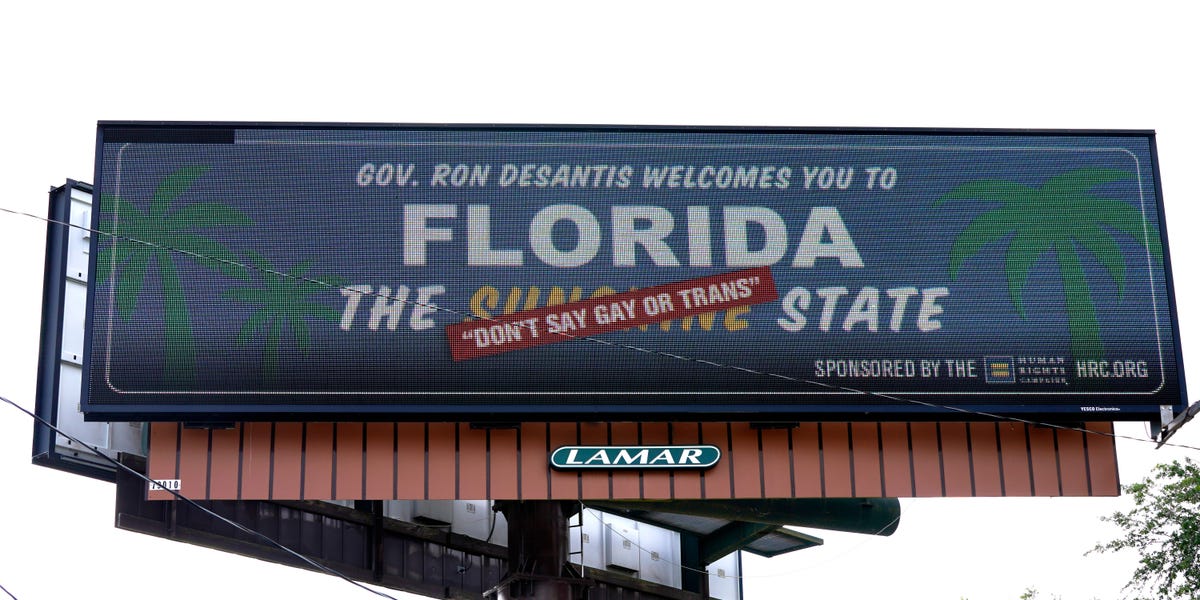- Victor Madrigal-Borloz is the United Nations independent expert on sexual orientation and gender identity.
- He visited the US for 10 days to observe “best practices” or “gaps” in safeguarding LGBT rights.
- “There is a deliberate effort to roll back the human rights of LGBT people at the state level,” he said.
A United Nations expert recently said he was alarmed to see efforts at the state level to weaken the rights of LGBTQ people after his 10-day visit to the US.
“I am extremely concerned about … a concerted series of actions at state level … to attack and to roll back the rights of LGBT persons,” Victor Madrigal-Borloz, UN’s independent expert on sexual orientation and gender identity, said on Tuesday.
—The Recount (@therecount) August 30, 2022
Madrigal-Borloz made his remarks during a UN press conference and on Twitter based on his findings from his visit to the US, which included stops at multiple states and meeting with more than 70 officials at the federal, state, and municipal levels.
The purpose of the visit was to seek “best practices” as well as any “gaps” in protecting LGBTQ rights, according to his 10-page summary of his visit.
In the document, Madrigal-Borloz applauded some of the federal efforts the US has made to protect LGBTQ rights, including President Joe Biden’s executive order last year that ensures “equal treatment under the law, no matter their gender identity or sexual orientation.”
But further progress has to be made, he said.
Madrigal-Borloz cited how LGBTQ people are at a “systemic disadvantage,” in which LGBTQ-identifying young adults ages 18 to 25 are 2.2 times at greater risk of homelessness that non-LGBTQ people, while 23% of LGBTQ adults of color have no form of health coverage.
He also expressed concerns about how federal protections in place “remain volatile and subject to change by executive or judicial action.”
The expert was referring to the recent Supreme Court decision to overturn Roe V. Wade, and the legal pathway it might have set to revisit other landmark cases such as rulings on same-sex relationships and marriages.
There is also several state efforts to attack LGBTQ rights, Madrigal-Borloz wrote.
“A veritable plague of so-called anti-LGBT bills is sweeping across the country: in 2021, 268 anti-equality bills were introduced in state legislatures; it is expected that the number will be higher in 2022,” he wrote.
In one example, he referred to a recent decision by the Florida Board of Medicine to begin considering restrictions on gender-affirming care, which could include barring treatments for transgender youth under 18 years old.
Madrigal-Borloz recognized, overall, a “trend to weaponize state agencies” and create a legal strategy to combat Biden’s executive order.
Despite five decades of progress in the US, Madrigal-Borloz wrote, “equality is not within reach and often not even within sight, for all persons impacted by violence and discrimination based on sexual orientation and gender identity.”




